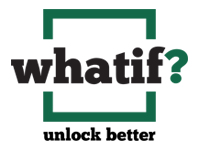
“What If Learning Was the Job?”
"Performance without learning is just repetition, and repetition in today’s world is a slow path to irrelevance. "
A CEO I recently spoke with asked, “What if learning speed was our most important metric?” That question resonated with me because I’ve noticed a subtle shift occurring in high-performing teams. It’s not about increasing output, optimization, or even better execution, though those things matter a great deal. It’s about something deeper and more adaptive.
The teams that thrive in the era of AI will be the ones that learn faster than the world around them changes.
We’ve spent decades figuring out how to move faster than markets, customer preferences, or investor appetite, investing millions in technology, supply chains, and processes. Yet, at the same time, we’ve treated learning primarily as a perk. Something to be slotted between performance review and productivity goal conversations. In this duality of volatility and velocity, the best leaders are realizing that learning isn’t an accessory; it’s a smart strategy.
So, here’s a question worth pondering:
What if learning wasn’t something you squeezed in, but your job?
Why This Matters Now
The pace of change has outstripped the pace of team development. We are seeing AI transform the way we work, while at the same time, it’s quietly shaping how we grow. Old competencies don’t last, while new ones are not yet clear. And as the half-life of knowledge diminishes, so does the illusion that we can know enough to coast.
If we want to remain relevant to our customers, talent, and investors, we must reward learning, not just knowledge. We must build learning as a core capability and use it in turn to build relationship capital.
That means we must model curiosity, celebrate iteration, and create environments where it’s okay to say, “I don’t know…yet”
Why Do We Still Treat Learning as a Fix, not a Feature?
The best leaders I know are embracing courage along with curiosity, and aren’t just building smarter teams, they’re building braver ones.
Teams that:
- De-risk innovation by normalizing experimentation (failure)
- Measure momentum as well as metrics
- See feedback as fuel, not friction
They are making the time and space for questions, not just answers. They gather, roll up their sleeves and dig in on, ‘what did we learn this week?”, not just “what did we do”? They are tapping into their inner scientist to lead by learning, and out loud.
Your Next Move
If leaning were your actual job, not just a bonus, a side project, or a box to tick, but the real job, what would you do differently?
Ask yourself and your team:
- What are we still optimizing for being right, rather than getting better?
- What assumptions have we outgrown but haven’t let go of yet?
- What limiting belief might be holding us back?
- What’s one small experiment we could run now to learn something new about our customers, our business practices, or ourselves?
Closing Thought
We often say we want teams that perform under pressure. Teams that rise to the moment that matters. But performance without learning is just repetition, and repetition in today’s world is a slow path to irrelevance.
What if we stopped treating learning as a detour, but the path worth taking? What might we accomplish?
Let’s unlock better – together.


Leave a Reply